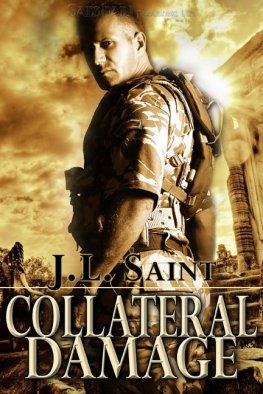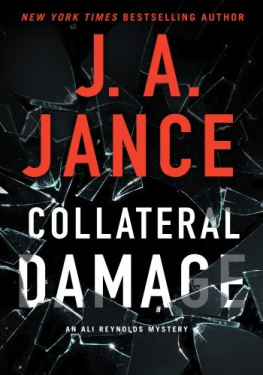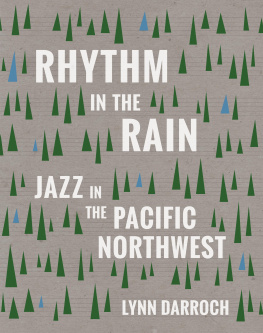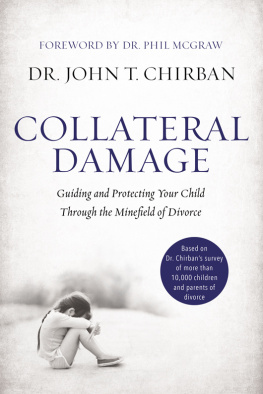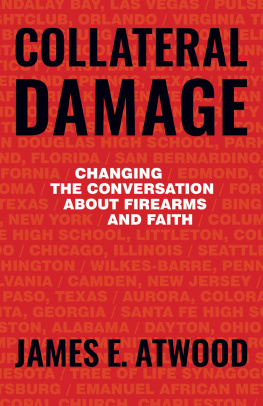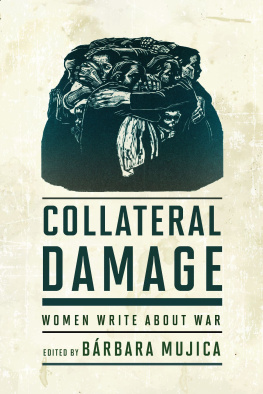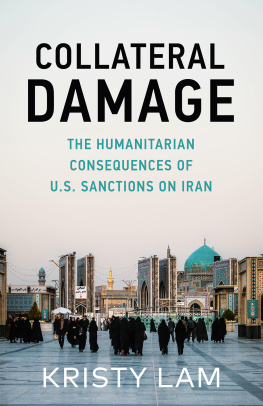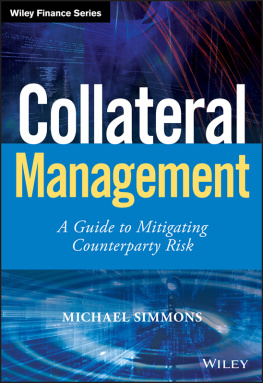Kim Darroch - Collateral Damage
Here you can read online Kim Darroch - Collateral Damage full text of the book (entire story) in english for free. Download pdf and epub, get meaning, cover and reviews about this ebook. year: 2020, publisher: HarperCollins Publishers, genre: Detective and thriller. Description of the work, (preface) as well as reviews are available. Best literature library LitArk.com created for fans of good reading and offers a wide selection of genres:
Romance novel
Science fiction
Adventure
Detective
Science
History
Home and family
Prose
Art
Politics
Computer
Non-fiction
Religion
Business
Children
Humor
Choose a favorite category and find really read worthwhile books. Enjoy immersion in the world of imagination, feel the emotions of the characters or learn something new for yourself, make an fascinating discovery.
- Book:Collateral Damage
- Author:
- Publisher:HarperCollins Publishers
- Genre:
- Year:2020
- Rating:5 / 5
- Favourites:Add to favourites
- Your mark:
- 100
- 1
- 2
- 3
- 4
- 5
Collateral Damage: summary, description and annotation
We offer to read an annotation, description, summary or preface (depends on what the author of the book "Collateral Damage" wrote himself). If you haven't found the necessary information about the book — write in the comments, we will try to find it.
Collateral Damage — read online for free the complete book (whole text) full work
Below is the text of the book, divided by pages. System saving the place of the last page read, allows you to conveniently read the book "Collateral Damage" online for free, without having to search again every time where you left off. Put a bookmark, and you can go to the page where you finished reading at any time.
Font size:
Interval:
Bookmark:


William Collins
An imprint of HarperCollinsPublishers
1 London Bridge Street
London SE1 9GF
WilliamCollinsBooks.com
This eBook first published in Great Britain by William Collins in 2020
Copyright Kim Darroch 2020
Cover design by Steve Leard
Cover photographs Getty Images
Kim Darroch asserts the moral right to be identified as the author of this work
A catalogue record for this book is available from the British Library
All rights reserved under International and Pan-American Copyright Conventions. By payment of the required fees, you have been granted the non-exclusive, non-transferable right to access and read the text of this e-book on-screen. No part of this text may be reproduced, transmitted, down-loaded, decompiled, reverse engineered, or stored in or introduced into any information storage and retrieval system, in any form or by any means, whether electronic or mechanical, now known or hereinafter invented, without the express written permission of HarperCollins
Source ISBN: 9780008411572
Ebook Edition September 2020 ISBN: 9780008411596
Version: 2020-08-19
To Vanessa, to whom I owe it all
Contents
*
Its going to be a rough few days, Ambassador, but well get through this
the embassy media team, 5 July 2019
*
W EVE GOT a problem. Theres been a leak.
I looked at my chief of staff, poised in the doorway to my office. Normally a picture of unflappable calm and command, she looked anxious. The embassy media team were hovering just behind her.
It was Friday 5 July 2019, the day after US Independence Day: the embassy was half empty, with many staff away for a long weekend. And it was a typical summers day in the Swamp: hot, humid, soupy. As usual, the air conditioning, perfect in the rest of the building, wasnt quite cutting it in my office; a consequence, I supposed, of inhabiting the largest space in the building. I was just seven days away from going on leave myself, to the refuge of our cottage in Cornwall and three weeks of messing around in sailing boats. My wife, Vanessa, would be returning to the UK that evening, to catch up with her 96-year-old mother. And I felt like I needed a break too, but not just to escape the heat. Being ambassador in Washington had always been a seven days a week, fifteen hours a day job. But even by these standards it had been a draining period: the Presidents state visit to London, a succession of British ministers and parliamentarians in town, a speech at the Aspen Ideas Festival, a visit to Montana, and on the Washington circuit, a multiplicity of events every night at which attendance was obligatory all against the background of the resignation of the British Prime Minister Theresa May and the competition to succeed her.
The words theres been a leak were ones I had heard regularly during my time in Washington. They usually related to the porous state of the plumbing and guttering in the outwardly majestic ambassadorial residence next door. Indeed, a bucket was permanently stationed in the corner of the master bedroom, there to catch the contents of Washingtons occasional fierce cloudbursts. But it was instantly clear to me that this was a different kind of leak. The media team told me that the Mail on Sunday had tipped off one of the Foreign Secretarys special advisers that they had a stash of communications from the Washington embassy to Whitehall. The newspaper had sportingly provided a handful of screenshots of individual pages, prompting a bizarre parlour game: how quickly could we identify the full documents from the pages provided? We passed the test: within an hour, we knew, with one exception, what they had.
The senior team assembled around my conference table. Copies of the leaked texts were handed around. The Mail on Sunday were telling our London colleagues that they had a lot of material, . The three documents we had identified were cables (diptels diplomatic telegrams, in Foreign Office jargon) from the previous three weeks: on the state visit, on President Trumps 2020 campaign launch, and on US policy on Iran. These were sensitive but on a quick skim, I reckoned the blowback should be manageable. But they came to considerably less than twenty-plus pages: so what else did the Mail have?
The detective work continued. Bewilderingly, judging by the screenshot, the remaining text was from 2017, two years earlier, and was a letter, not a cable. Cables usually had a wide circulation, in the hundreds: letters generally had more sensitive content and a much smaller readership. So the letter format alone was worrying. As was the fact of the long gap between this and the other documents, suggesting that someone had been curating my output for years, and selecting the most combustible material.
The minutes ticked past. My concerns mounted. While those around the table continued to chew over the leaks already identified, one of my private office team, at her desk immediately outside my office, scrolled through the document archive. I heard the photocopier whirring before she emerged with a sheaf of copies in her hand.
The remaining leak was a confidential letter from me to Mark Sedwill, cabinet secretary and national security adviser, dating back to mid-2017. This had been written as input for a top-level discussion of UK-US relations, some six months into the new US administration. My mood sank. This was really bad.
The National Security Council had been created by David Cameron and William Hague when the coalition government took office in 2010, in part as a reaction to claims that the previous government had decided to go to war in Iraq without proper consultation of senior cabinet ministers. As national security adviser from 2012 to 2015, I had organised its work. So when I wrote that letter in 2017, I had known what was required: a frank, unvarnished assessment of the Trump administration, seven months into office.
The letter had provided exactly that. Given its sensitivity, it had gone to a very small number of people in Whitehall. It had described the infighting inside the White House chronicled daily by the US media, drawing on dozens of sources inside the building. It had summarised the policy missteps, especially the executive orders banning travel from several Muslim countries, a measure quickly blocked in the US courts. It had highlighted the damaged relationships with NATO allies, in the wake of President Trump picking fights with many of them at a . The letter had also, however, highlighted his killer instinct for the vulnerabilities of his opponents; his Teflon qualities; and his extraordinary empathy with his political base, who treated him less as a politician, more as a messiah. But I immediately doubted that these more positive comments would be given any prominence in the media.
I remembered that one of my predecessors, my close friend Nigel Sheinwald, had gone through a comparable experience when a less than totally flattering letter he had written about Barack Obamas qualities as a presidential candidate had leaked to a (different) newspaper. Nigel had survived. Obamas team had declined to respond to the leak. Was there any chance that the Trump White House might behave similarly? I had my doubts.
Font size:
Interval:
Bookmark:
Similar books «Collateral Damage»
Look at similar books to Collateral Damage. We have selected literature similar in name and meaning in the hope of providing readers with more options to find new, interesting, not yet read works.
Discussion, reviews of the book Collateral Damage and just readers' own opinions. Leave your comments, write what you think about the work, its meaning or the main characters. Specify what exactly you liked and what you didn't like, and why you think so.



